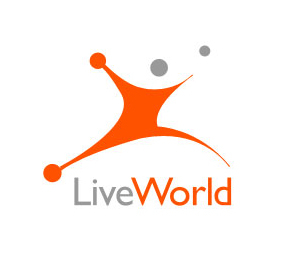Vol. 9, Issue No. 4: APRIL 2010 – EXECUTIVE SUMMARY What’s Your Social Media Implementation Plan? Upfront Commentary
 We are in a pharma social media frenzy “bubble!” Or maybe it’s a tsunami because I feel that along with everyone else, I am riding this gigantic wave and not sure where it will land me.
We are in a pharma social media frenzy “bubble!” Or maybe it’s a tsunami because I feel that along with everyone else, I am riding this gigantic wave and not sure where it will land me.
Haven’t we written all there is to write about this? I thought so, but then Sanofi-Aventis (SA) had a problem with its VOICES Facebook page that stunned everyone concerned.
The incident provoked a lot of new thinking about how to manage pharma social networks rather than how the FDA should regulate pharma use of social media. We’ve just passed a new milestone and entered a pharma social media implementation phase. Are you ready?
Read this entire OpEd piece by John Mack here:
www.news.pharma-mkting.com/PMNews_94_UpFront.pdf Real Patient Testimonials An Effective Social Media Marketing Strategy
 Drug companies have long used celebrities to endorse their products. However, according to a recent Wall Street Journal article, market research shows that the sick are relying more on the recommendations of fellow patients, and less on the reputations of companies and endorsers, in deciding whether to seek treatment and what drugs to ask for. Exploiting that trend, pharma marketers are beginning to use real patients in their direct-to-consumer TV and print ads and are soliciting real patient stories on their web sites, YouTube channels and Facebook pages.
Drug companies have long used celebrities to endorse their products. However, according to a recent Wall Street Journal article, market research shows that the sick are relying more on the recommendations of fellow patients, and less on the reputations of companies and endorsers, in deciding whether to seek treatment and what drugs to ask for. Exploiting that trend, pharma marketers are beginning to use real patients in their direct-to-consumer TV and print ads and are soliciting real patient stories on their web sites, YouTube channels and Facebook pages.
Given the popularity of social networks among consumers seeking medical advice, the next logical step may be the use of real patient brand ambassadors to participate in pharma-owned and 3rd-party online discussion forums.
This article discusses the potential pitfalls, regulatory issues, and best practices regarding the use of real patient testimonials based on comments collected from a recent survey of readers and other experts.
Topics include:
- Peer-Influenced Marketing
- Soliciting Patient Stories
- Consumer Opinion Leaders
- FDA Blasts Lilly’s PAH eCommunity Videos
- FTC Publishes Final Guides Governing Endorsements, Testimonials
- Avoiding the Pitfalls
- Are Patient Testimonial Ads More Persuasive?
- Brand and Disease Category Ambassadors
- Integrating Broadcast DTC and Social Media
Read this article now. It’s FREE…
How to Manage the Online Conversation Community Management Best Practices & Other Tips from LiveWorld
 As more and more pharmaceutical companies launch social networking platforms associated with their brands, some will allow users (consumers, patients, and physicians) to post comments as part of ongoing discussions about their drugs and/or the conditions these drugs treat. Recent pharma experience with social media discussions demonstrates how important it is to properly manage online communities.
As more and more pharmaceutical companies launch social networking platforms associated with their brands, some will allow users (consumers, patients, and physicians) to post comments as part of ongoing discussions about their drugs and/or the conditions these drugs treat. Recent pharma experience with social media discussions demonstrates how important it is to properly manage online communities.
In public comments made to the FDA, LiveWorld, Inc. — a leading global social network marketing agency that develops, operates and moderates private label social network sites – said “Moderation of user content related to healthcare subjects in social networks is central to the current discussion.” Pharma Marketing News had an opportunity to interview Jenna Woodul, LiveWorld’s EVP and Chief Community Officer, about how pharma companies can manage their social media interactions using technology and “credentialed participants” for moderating and managing online discussions.
This article presents a summary of that conversation plus some results of a recent survey of readers regarding moderation best practices.
Topics include:
- What Sanofi-Aventis Learned from Its FaceBook Experience
- The Value of Discussion
- To Moderate or Not to Moderate?
- Survey Results
- A Strategy for Community Growth
Read this article now. It’s FREE…
Moderation Best Practices for Pharma Social Networks Pre, Post, or No Moderation… Whatever. You Must Have a Plan!
 As pharmaceutical companies attempt to interact with consumers and patients on social media networks they host, they are wary of overstepping undefined regulatory boundaries. One issue that requires clarification concerns accountability for user-generated content posted on these pharma owned and controlled social networks such as comments submitted to Facebook pages and YouTube channels.
As pharmaceutical companies attempt to interact with consumers and patients on social media networks they host, they are wary of overstepping undefined regulatory boundaries. One issue that requires clarification concerns accountability for user-generated content posted on these pharma owned and controlled social networks such as comments submitted to Facebook pages and YouTube channels.
While the FDA mulls over new guidelines that define those boundaries, pharma companies are launching new social media sites with increasing frequency. Although these sites may not be branded and may have terms of use specifying what is acceptable and unacceptable user-generated content, the question remains how to enforce those rules through moderation, especially with regard to handling of off-label information. Although this is a moot point at the moment – almost all such sites have comments turned off – it is important to have a moderation strategy designed to meet your specific goals when and if you build a truly interactive social network.
This article presents a summary of results from a recent survey of readers and other experts regarding pharma social media moderation best practices.
Topics include:
- What’s Your Social Media Implementation Plan?
- Unmoderated Discussions
- Does Pre-Screening Inhibit Discussion?
- Post-Moderation Best Practices
- Who Should Moderate?
Read this article now. It’s FREE…
Use of Social Media for Health Purposes in the EU How Doctors, Patients, and Pharma Engage with Each Other
 EPG Health Media (part of the IMR International Group), recently published a market research report “Social Media and Healthcare.” The report examines how European doctors, patients/consumers and pharma engage (and seek to engage) with each other. The information helps EU marketers understand the potential for future change in terms of the use of social media in relation to health.
EPG Health Media (part of the IMR International Group), recently published a market research report “Social Media and Healthcare.” The report examines how European doctors, patients/consumers and pharma engage (and seek to engage) with each other. The information helps EU marketers understand the potential for future change in terms of the use of social media in relation to health.
This article is a summary of that report, which surveyed HCPs, pharmaceutical professionals and consumers/patients within the “top-5” EU countries; ie, United Kingdom, Germany, France, Spain and Italy.
Topics include:
- AE Monitoring Policies
- Marketing Budgets Shifting
- HCP Networks
- Key Survey Findings
Read this article now. It’s FREE…



![6 Digital Tools at the Center of Healthcare Digitalization [INFOGRAPHIC]](http://ec2-54-175-84-28.compute-1.amazonaws.com/pharma-mkting.com/wp-content/uploads/2021/04/6DigitalTools_600px-218x150.jpg)




![6 Digital Tools at the Center of Healthcare Digitalization [INFOGRAPHIC]](http://ec2-54-175-84-28.compute-1.amazonaws.com/pharma-mkting.com/wp-content/uploads/2021/04/6DigitalTools_600px-100x70.jpg)




